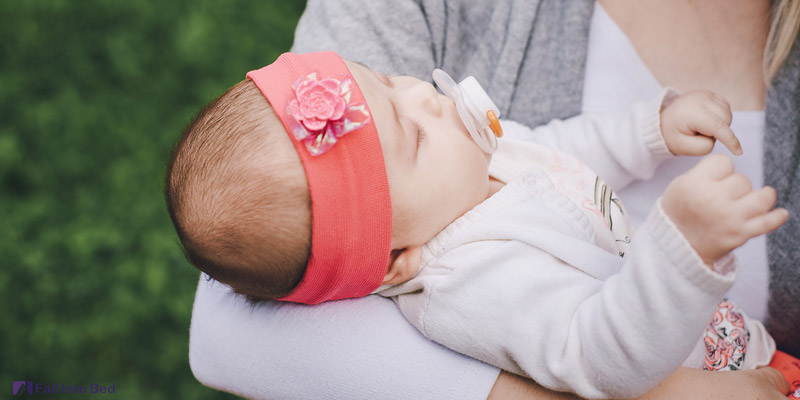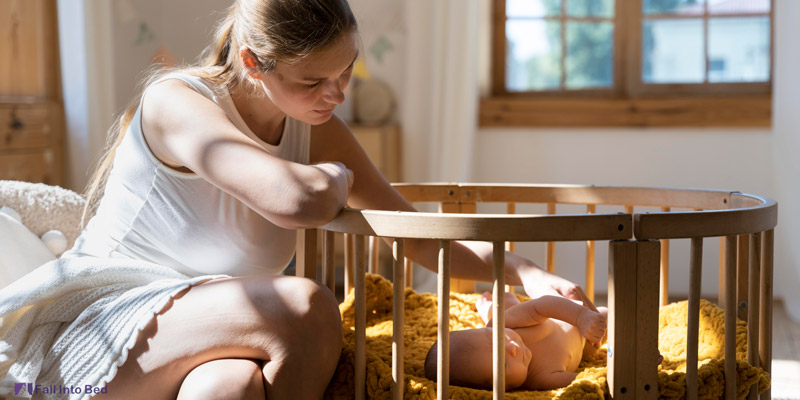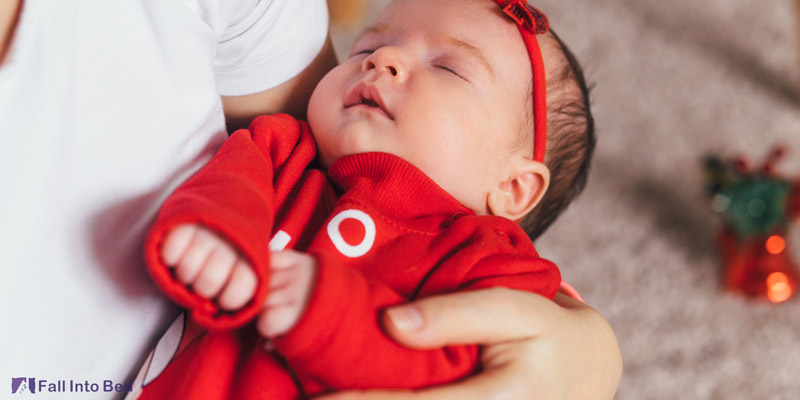Nothing is more enjoyable for a parent than to watch their new-born falling asleep in their arms. And for the first few weeks both parents and the baby feel good about this. But after some time, it can get pretty exhausting for the parents if their baby only sleeps when held.
If you as a parent are facing this problem that it has become a habit of your baby to only sleep when held, stay with us to the end of this article to find out why your little one loves to sleep in your arms and how to get them to sleep independently in their crib.
Why do babies love to be held?
Holding your baby in your arms fulfil their need for physical touch and closeness. It can also make them feel more secure and comfortable and because their body is close to you it can help regulate their body temperature.
Another reason why your baby love to be cuddled is the sensory stimulation they get via their caregiver’s touch, voice and scent. These stimulations can assist in the development of their nervous system.
Overall, some of the reasons why babies love to be held in your arms are the following:
- Sense of security and comfort
- Temperature regulation
- Sensory stimulation
- Social interaction with the caregiver
Why do new-borns only sleep when held?
If you spend an hour preparing your baby to sleep and put them in their crib only to hear them start crying as you’re walking away from the crib, you’re not alone. Even though most babies eventually learn to sleep on their own, there are several reasons why they love to be held when they want to sleep.
1. Reflux
Babies with reflux feel more comfortable sleeping in an upright position and usually that’s the reason why they fall sleep in your arms. To deal with this situation, you can hold your baby upright for 15 to 20 minutes after feeding them and then, try to put them to sleep in their crib.
2. Separation anxiety
As early as 4 months to 8 months, your baby can develop separation anxiety and find it very hard to stay away from their parents even for a few minutes. This phenomenon can make it more challenging for the parent to put the baby to sleep in their crib, as they feel more secure and relax when they feel your presence around them while sleeping.
3. Developmental stages
Your baby has spent 9+ months in the womb and adapting to this new environment can take some time. So, in the first few months they might seek more closeness and physical contact with their parent while being rocked to sleep. Due to developmental milestones that babies go through, especially the first 24 months of their life, their sleep pattern might change. If they develop colic in the first few weeks of their life, you can try specific sleeping positions that is used for a colic baby.

4. Body temperature
Some babies find it easier to regulate their body temperature when held by their caregiver, hence choosing to fall asleep in their arms.
5. Habit
If you have rocked your baby to sleep since they were born, they probably have gotten used to it and find it hard to sleep without this situation.
Pros and cons of letting your baby get used to only sleeping when held
One of the benefits of holding your baby to sleep is creating a bond and attachment between the baby and the caregiver. Holding your baby to sleep makes them feel more secure and comfortable that can eventually help them have a better nervous system development. Also, it can make the process of breastfeeding or bottle feeding easier.
However, if this process becomes a habit, it can pose challenges to the parents as it can get very frustrating to have to hold their baby for sleep every time.

It can also lead to disrupted sleep patterns and difficulty stablishing a consistent sleep routine, therefore keep parents from engaging in other activities.
Some babies even refuse to sleep in the crib due to various reasons like separation anxiety, developmental milestones or other reasons.
How to get new-borns to sleep without being held
1. Sleep environment
Create a comfortable environment for your baby to sleep in. By making the room dark and without any stimulation, your little one can fall sleep sooner and more relaxed. Additionally, there are some tricks in how to put your baby to sleep in less than a minute. Pay attention to the room temperature as it’s best to stay between 20 Celsius to 23. (68 to 72 Fahrenheit).
Also, make sure your baby is in a comfortable and safe sleeping position. Especially if they’re younger than 12 months. During this time, the wrong positions can highly increase the chances of sudden infant death syndrome.
2. Slow transition
If you try to suddenly make your baby to stop their habit of falling asleep on your arms, you have no luck. Make this transition slow and over time, so the baby can get used to sleeping independently and on their own. You can start with holding your baby until they get sleepy and drowsy and then put them in their crib. Later on, you can gradually put them to sleep in their crib.

3. White noise
Gentle sounds like white noise have the ability to establish a calming environment. You can put white noise recordings, such as rain or flowing water, available on platforms like YouTube or Google, or just get a white noise machine for relaxation.
4. Give them a pacifier
Offering your baby their pacifier or favorite stuffed animal can help them fall asleep faster. The sucking motion can make your baby calm and more relaxed. Even though you might enjoy rocking your baby to sleep in your arms, it’s better to help your baby to start sleeping independently to get used to their crib.
Now that you know why your baby likes to cuddle when sleeping and how you can gradually let them sleep on their own, you help your baby to get out of this habit.
Sweet dreams!








